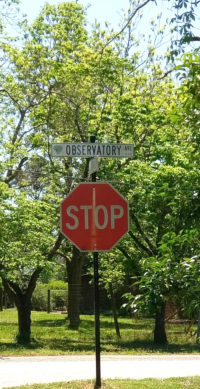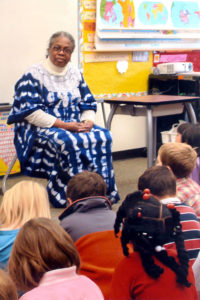2022 Sabbatical Week: Daily Reflections
We are grateful to the Order of St. Helena (Monday - Thursday) and the Most Rev. Michael Curry (Friday) for providing daily reflections for our Sabbatical Week.
The Order of St. Helena is a monastic community for women in the Episcopal Church:
The mission of the Order of Saint Helena is to show forth Christ through a life of monastic prayer, hospitality, and service. We are lay and ordained women living communally under a vow of monastic poverty, celibate chastity, and obedience to God. From Benedictine roots, we discern new ways to interpret traditional monasticism, as we strive to grow in diversity and inclusivity.
The Most Rev. Michael Curry is the Presiding Bishop of The Episcopal Church:
“Being a Christian is not essentially about joining a church or being a nice person, but about following in the footsteps of Jesus, taking his teachings seriously, letting his Spirit take the lead in our lives, and in so doing helping to change the world from our nightmare into God’s dream.”
We invite you to visit this page each day during our Sabbatical Week to read the daily reflection. Following the reading, you'll find questions to ponder throughout your day. We hope these reflections help bring you peace and help you feel a closer connection to God.
Monday, March 7: Silence
Silence as the Teacher
In these days of social distancing, the push for connection and conversation via voice, text, and social media is high. The amount and frequency of information being sent out is the equivalent of howler monkeys in high alert mode. In the midst of it all, I’ve been grateful for the practice of profound silence. Silence around me and silence within. It is a practice cultivated over time, a practice I’m still cultivating, a practice that continues to teach me.
Years ago, I spent thirty days on a silent retreat at a Benedictine abbey. Outside of chapel and three hours a week with my spiritual director, I did not speak. It took a few days to settle into the rhythm of silence and all of its accompaniments — the muffled footsteps and swish of fabric as the community filed into chapel, the shy smile and nod of the housekeeper in the hall every morning, the crinkle of a wrapped candy pressed into my hand by the guest master each afternoon, the ease of sitting with others without the need for small talk, the clank of silverware on a plate, and the depth into which the words of God sank into my soul as nourishment.
 As the month progressed, I discovered I had less and less to say to my spiritual director. By the third week, most of our hours together were spent sitting in silence. I asked my director about that, worried that I should have more to say. He said to me, “There is no need other than for the silence to teach us.” I wasn’t sure in that moment exactly what he meant, but as the retreat went on and in the following years as I continued practices of periodic silence and retreats, I began to get an inkling of this idea of silence as the teacher.
As the month progressed, I discovered I had less and less to say to my spiritual director. By the third week, most of our hours together were spent sitting in silence. I asked my director about that, worried that I should have more to say. He said to me, “There is no need other than for the silence to teach us.” I wasn’t sure in that moment exactly what he meant, but as the retreat went on and in the following years as I continued practices of periodic silence and retreats, I began to get an inkling of this idea of silence as the teacher.
I began to realize that the silence was tutoring me in what was necessary to voice out loud and what could, and even should, be left unspoken. I learned that the things I could not hold within myself could be offered in silence at the altar, while others could be whispered and carried down a river in the swirling current, and still others could be breathed into the night to sail up to the waves of stars.
Since those early days of silence, I’ve come to appreciate how the regular practice and discipline of silence can soften my heart and shape my spoken words, reigning in an impulsive response, tempering an unkind thought, or quieting excess words. Silence leaves space for God to speak and me to hear. Indeed, silence IS my teacher and I’m feeling the need to sit at her feet with deep attention during these Lenten days amidst the howler monkeys.
-Sr. Miriam Elizabeth, OSH
- How has silence been your teacher?
- What would a practice of silence look like for you during Lent?
Tuesday, March 8: Stillness
Observatory Avenue

In the small town of North Augusta where the convent is located, I have discovered a delightful short cut for driving to the public library. That short cut is Observatory Avenue, a street that’s easy to miss, yet a hidden treasure.
Driving down Observatory Avenue is visually like stepping back in time. Each house is different, each yard with a natural beauty all its own. Everything in me slows down, and I cut my speed to about 25 miles per hour. I find myself pausing inside and out, sometimes stopping the car, as I take in each yard: five huge camellia bushes; then dogwoods and colorful azaleas; next, four deep red Japanese maples; and lastly, thick pines and hardwoods nearly hiding a house. I want to soak in the gift of that small neighborhood and let it work its magic on me. I am stilled by its beauty. I notice I’m actually breathing. I forget myself and stress drops away. Thank you, Observatory Avenue.
As a person more left-brain dominant than right, I think more than feel. More truthfully written, I think, think, think more than I feel. I must pause to quiet my mind so the feeling part of me, my heart, has a chance to engage. Recently I sat with a guest who was asking deep questions about centering prayer. I believe it is only because I gave myself to those pauses for right brain and heart engagement that my answers were intuitive and beneficial.
Pausing for a deep breath at the asterisk found in the middle of each psalm verse is a monastic tradition for some communities, including OSH. Last month, a sister from another Episcopal community which follows this practice told me that the asterisks are her favorite part of the psalms, that she “feels she can reach out and touch Infinity” in those pauses. Have you noticed in some versions of the psalms that the word “Selah” is written here and there? While scholars differ in interpretation, some say that Selah means pause or rest. Maybe the psalmist is hinting to us!
The practice of pausing often sparks movement into more conscious living.
-Sr. Linda, OSH
- Pick a psalm or poem that you love. Say it aloud slowly, and at the end of each line, pause for a deep inbreath and slow outbreath.
- What effect does this practice have on you?
- What helps you pause in the middle of things?
Wednesday, March 9: Listen
The Invitation
 This summer I received a few invitations – one to a wedding, one to a family dinner, one to preach at a colleague’s church and one to preside at a funeral. I was able to accept some, but not others. It struck me that each invitation offered me an opportunity for a celebration or deepening of relationship. And I began to think about the invitations that Jesus extends.
This summer I received a few invitations – one to a wedding, one to a family dinner, one to preach at a colleague’s church and one to preside at a funeral. I was able to accept some, but not others. It struck me that each invitation offered me an opportunity for a celebration or deepening of relationship. And I began to think about the invitations that Jesus extends.
In the first six chapters of John’s gospel, Jesus offers at least five invitations. He says to Nicodemus, “Believe in me and have eternal life.” To the Samaritan woman at the well, he says, “Drink from the living water I have for you and never be thirsty.” To the man beside the pool he says, “Let me heal you,” and to the crowd who had eaten their fill of bread the day before, he says, “I am the bread of life. Eat me.” Jesus doesn’t judge responses in these moments. He doesn’t argue over anyone’s hesitation or questions. Jesus would rather begin a relationship and deepen the conversation, so he invites. Maybe these were the first altar calls.
I’ve heard our Presiding Bishop, the Most Rev. Michael Curry say, “We’re all invited to throw ourselves into the arms of Jesus!” I don’t think throwing ourselves is entirely of our own making. God draws us there, opening the ear of our heart to hear Jesus inviting us in.
Maybe you are a person who can point to a specific day and time of your altar call, a day and time when you responded to an invitation from Jesus. I don’t remember a particular altar call, but believe that in every moment, Jesus invites and offers me the chance to respond.
My usual recommendation when others hear the call is, “Eat the bread!” But I don’t always follow my own advice. Out of fear, anger, disappointment, defensiveness, or distraction, I don’t always eat the bread. And the moment passes. But with Jesus, grace abounds, and in the next moment the invitation rises again. Believe in me and have eternal life. Drink from the living water I have for you and never be thirsty. Let me heal you. I am the bread of life; eat me.
We can put up a fight, turn away, or say no. Or we can eat the bread and throw ourselves into the arms of Jesus.
–Sr. Miriam Elizabeth, OSH
- How does Jesus invite you into belief, healing and new life?
- When have you ignored or turned away from his invitation, only to hear it again, and then thrown yourself into the arms of Jesus?
Thursday, March 10: Learn
The Way of Love: Learning to Love Like Jesus

I learned Bible stories before I knew they were Bible stories. My parents told us the stories of an old man and his wife who were called to move from their homeland to follow God. I was much older when I learned this was Abraham and Sarah. We also heard stories about a young man who became pharaoh over Egypt and another who led the Israelites out of bondage. Joseph and Moses were known to me long before I knew their names. Jesus was my friend and companion long before I could speak a complete sentence. My siblings and I learned Old and New Testament stories in our youngest years. It was later, when I attended Sunday School, that we learned who these people were.
It was also in Sunday School that I learned stories about the seasons of the Church. We were shepherds in the Christmas play about the birth of Jesus. During Epiphany we learned about the magi visiting the baby Jesus. I remember, leading up to Holy Week, our teacher told us the story of how Mary’s son was killed on a cross and that it was called Good Friday. I ran home in tears, wondering why anyone would want to kill Jesus and why we would call that good.
My father took me into his lap and explained to me that God loves us all, that God created us to love God and one another, and that we had lost our way toward love. God brought Jesus into the world to show us the way of love, the way back to relationship with God. But there were people who were afraid of Jesus and his power to love. They killed him. God’s power was more, and he raised Jesus from the dead and that was Easter morning. And that was good.
I promised my father on that day that I would love Jesus forever and I have never gone back on my word. Throughout my life I have loved the stories of scripture, especially those stories and songs of Jesus that I learned in my childhood. I will always be grateful to those who shared these stories with me. I have spent my life sharing the love of Jesus through those same stories with everyone who will listen.
–Sr. Rosina, OSH
- Share a story about how you learned the Bible and the stories of Jesus and God’s people.
- How did you learn about God’s relationship with us?
- How do you help others learn the story of Jesus?
Friday, March 11: Rest
The Most Rev. Michael Curry, Presiding Bishop of The Episcopal Church, offers a video reflection for today. He begins by reflecting on a project to define spiritual practices, when he realizes the importance of rest.